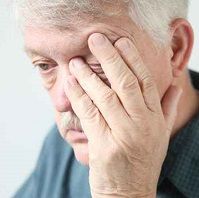Article
Fatigue in Patients with Rheumatoid Arthritis: Don't Ask, Don't Tell?
Author(s):
For decades researchers have been trying to identify the source of the correlation between rheumatoid arthritis (RA) and fatigue – a common symptom of the disease. However, the reason it may have remained a mystery for so long could be because there isn't one.

For decades researchers have been trying to identify the source of the correlation between rheumatoid arthritis (RA) and fatigue — a common symptom of the disease. However, the reason it may have remained a mystery for so long could be because there isn’t one.
Lead author Rinie Geenen and colleagues investigating for the Society for Rheumatology Research Utrecht presented multiple new findings within 2 studies at the European League Against Rheumatism Annual Congress (EULAR 2015). In addition to identifying key information regarding RA and fatigue, they introduced a new criteria to measure symptoms.
“This lack of association between fatigue and objective disease activity markers in patients with RA is counterintuitive since patients and doctors consider fatigue an indicator of underlying disease activity,” Geenen, of the Department of Clinical Health Psychology University Medical Centre Utrecht, said in a news release.
The team evaluated 248 patients with RA — 76% female and an average age of 53 – to track disease activity at the start of treatment as well as 3 and 6 months following. A visual analogue scale of 0 through 10 was used to record fatigue and erythrocyte sedimentation rate along with a 28 swollen joint count evaluation added to the data.
“We were surprised to find that, not only is there hardly any association between levels of fatigue and RA disease activity between different individuals, but also changes in fatigue are not associated with fluctuations in disease activity in specific patients,” Geenen explained.
Another study surveyed more than 2,000 patients with RA to get a better understanding of how their disease is managed. Not only did the research reveal that 79% of the subjects have never had their fatigue measured, but 66% disclosed that they had never or rarely even been asked about the symptom.
The report suggests that RA treatments do not target fatigue, however, clinical guidelines in certain countries — such as the United Kingdom – do not prominently offer those kinds of measurements.
“If we want to improve the management of fatigue associated with RA, use of validated fatigue measurements will be an essential component to the revision of our current clinical guidelines,” one of the investigators Ailsa Bosworth, of the National Rheumatoid Arthritis Society, advised.





